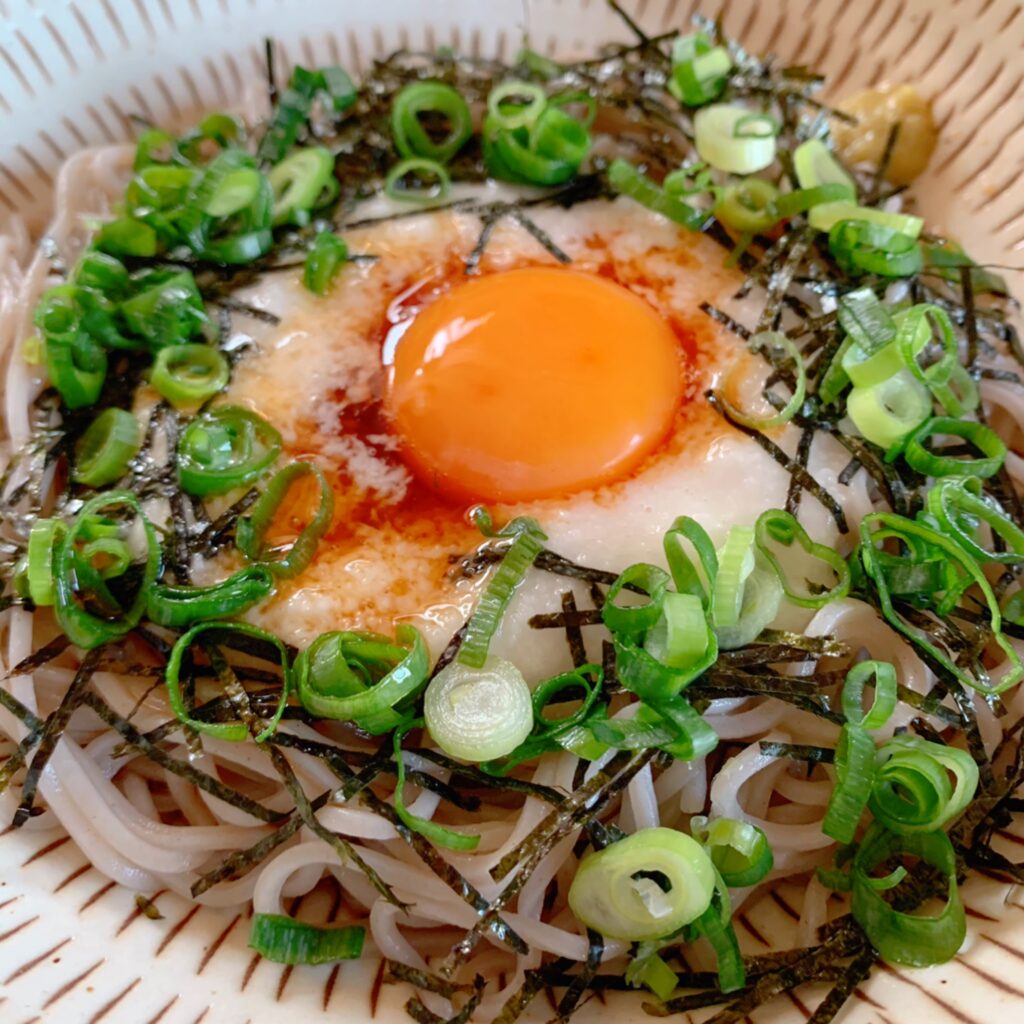
Yamakake soba noodle (Tororo soba)
🍲What kind of dish is Yamakake soba noodle (Tororo soba)??
Yamakake Soba, also known as Tororo Soba, is a popular variation of the traditional Japanese noodle dish soba, topped with a generous amount of grated yam (nagaimo).
The smooth texture of the grated yam, its slippery feel, and its sticky consistency bring out the full flavor of the light soba noodles.
Among the many soba toppings available, yam-flavored soba noodles are particularly popular.
💡 (Recommended Serving Instructions) Adding a raw egg to your liking adds a rich, mellow flavor to the smoothness of the grated yam, creating an even more mellow and profound taste. (If you don’t like raw eggs, feel free to omit the egg.)
🥢”Tororo” and “Yamakake”
Tororo: Grated yam, characterized by its unique stickiness and smooth, silky texture.
Yamakake: A general term for dishes topped with grated yam. It is used not only for soba (Yamakake Soba/Tororo Soba), but also for udon and rice (Yamakake Gohan).
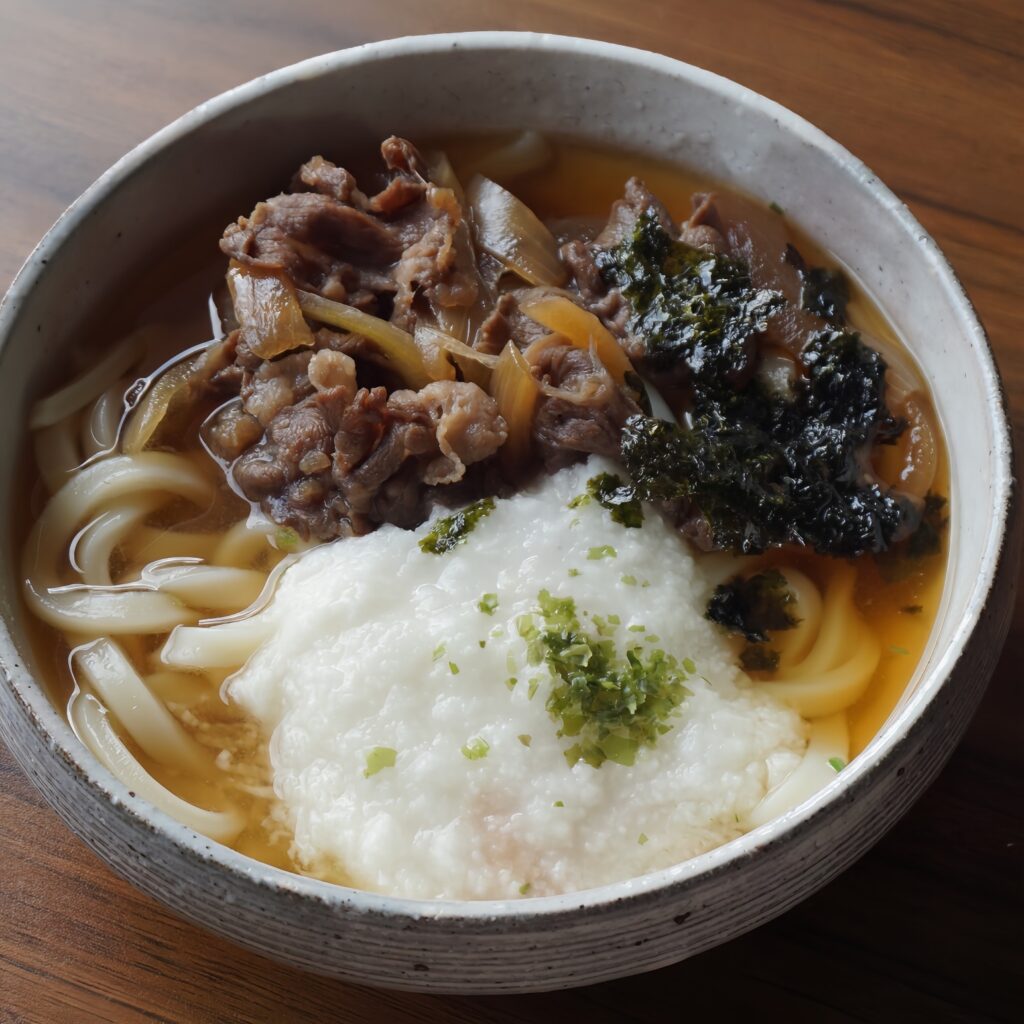
🍜 About Soba (Soba)
Soba is a Japanese noodle dish made primarily from buckwheat flour.
Buckwheat flour is kneaded with water, rolled thinly, and cut into thin strips. Because buckwheat flour has little gluten, it’s common to add wheat flour, mountain yam, or eggs as binders.
Juwari Soba (100% Fresh Flour): This refers to soba noodles made without any binders other than buckwheat flour. This allows you to fully enjoy the soba’s original flavor.
🌷Main Soba Variations (Example Toppings)
In addition to Yamakake Soba, soba noodles are available with a variety of toppings, including the following, to suit the season and your mood.
| Variety | Characteristic Topping |
| Niku Soba | Beef simmered in soy sauce and sugar (sweet and savory) |
| Sansai Soba | Seasonal wild vegetables such as bracken (warabi), bamboo shoots (takenoko), and nameko mushrooms |
| Zaru Soba / Seiro Soba | Cold noodles served with chopped green onions or nori seaweed and wasabi. Cold soba noodles are served on a board made of thin bamboo strips tied together with string called zaru. They are also known as “seiro soba.” |
| Kakiage Soba | Tempura of ingredients like shrimp and onion slices (mixed vegetable fritter) |
| Kamo Nanban Soba | It is topped with roasted duck and white leek. In Oita Prefecture, it is often garnished with yuzu pepper. |
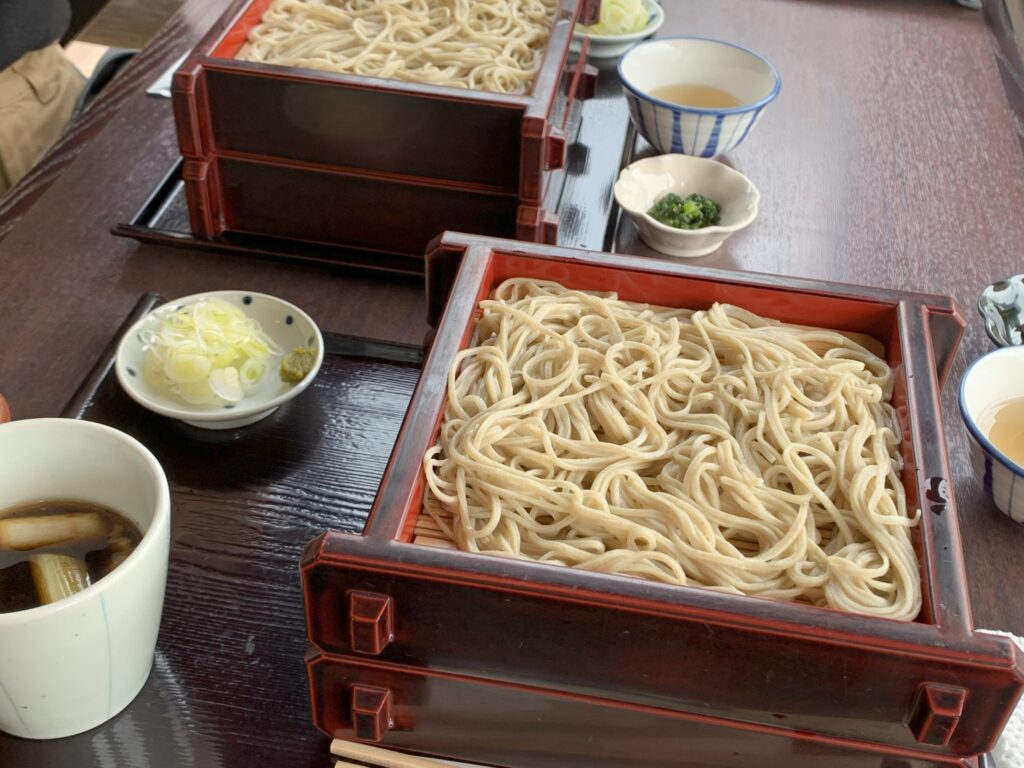
💪Health benefits of Yamakake soba
Yamakake Soba offers excellent health benefits thanks to the combination of soba (buckwheat noodles) and yam (tororo), both of which are highly nutritious.
🌱Rutin Prevents Lifestyle-Related Diseases
Soba soup, the water used to boil soba noodles, contains dissolved rutin, a nutrient found in buckwheat flour.
🔹 What is rutin?
It is a flavonoid, a type of polyphenol. It is believed to help prevent high blood pressure and arteriosclerosis.
At soba restaurants, it’s customary to mix soba soup with leftover noodle soup and drink it, a logical way to ensure you’re getting the full rutin.
🥬Low GI Value Supports Blood Sugar Management
Soba noodles are known as a low GI (glycemic index) food.
Incorporating low-GI foods into your diet will help moderate blood sugar levels and support a healthy diet.
🔹Low GI Food Criteria
According to the University of Sydney in Australia, foods with a GI value of 55 or less are classified as low GI foods.
Soba (buckwheat) GI Value: Compared to white rice, which has a GI of 77, soba has a low GI of 47.
🌈Yamaimo (Tororo)’s Digestive Support Effect
Unlike other tubers such as potatoes, yamaimo has the rare characteristic of being able to be eaten raw.
Raw yamaimo is easy to digest, making it a recommended food for when you’re feeling unwell or have a poor appetite.
The sticky components in yamaimo protect the stomach lining, and when combined with soba, it makes for a smooth, easy-to-eat meal and also helps provide nutrients.
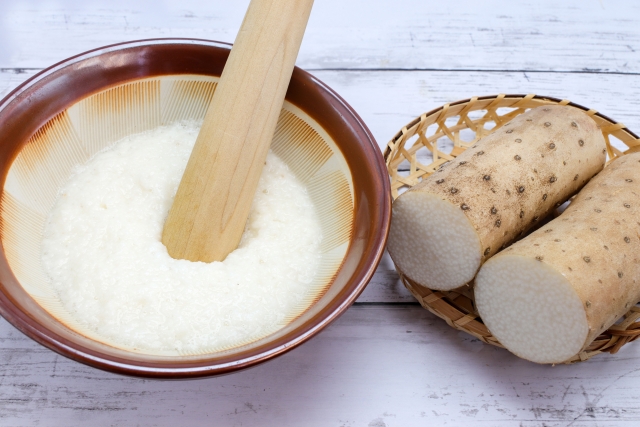
🍶About the soup used in Japanese noodle dishes
Mentsuyu: Commercially available Mentsuyu can be purchased at supermarkets and convenience stores. It is a versatile seasoning that can be used for all kinds of Japanese cuisine, including simmered dishes, udon, and rice bowls (donburi).
Soba Tsuyu: You use sugar to enhance the sweetness. This sweetness often complements the earthy flavor of buckwheat soba.
Udon Tsuyu: You use mirin instead of sugar. Mirin provides sweetness along with a deeper, more complex umami flavor from the alcohol and aging process, which pairs well with the neutral flavor of wheat-based udon.
📊NUTRITION FACTS : Yamakake soba (Tororo soba)
- 696 kcal
- Protein 26.7g
- Fat 14g
- Carb 119.7g
- Salt Equivalent 2.1g
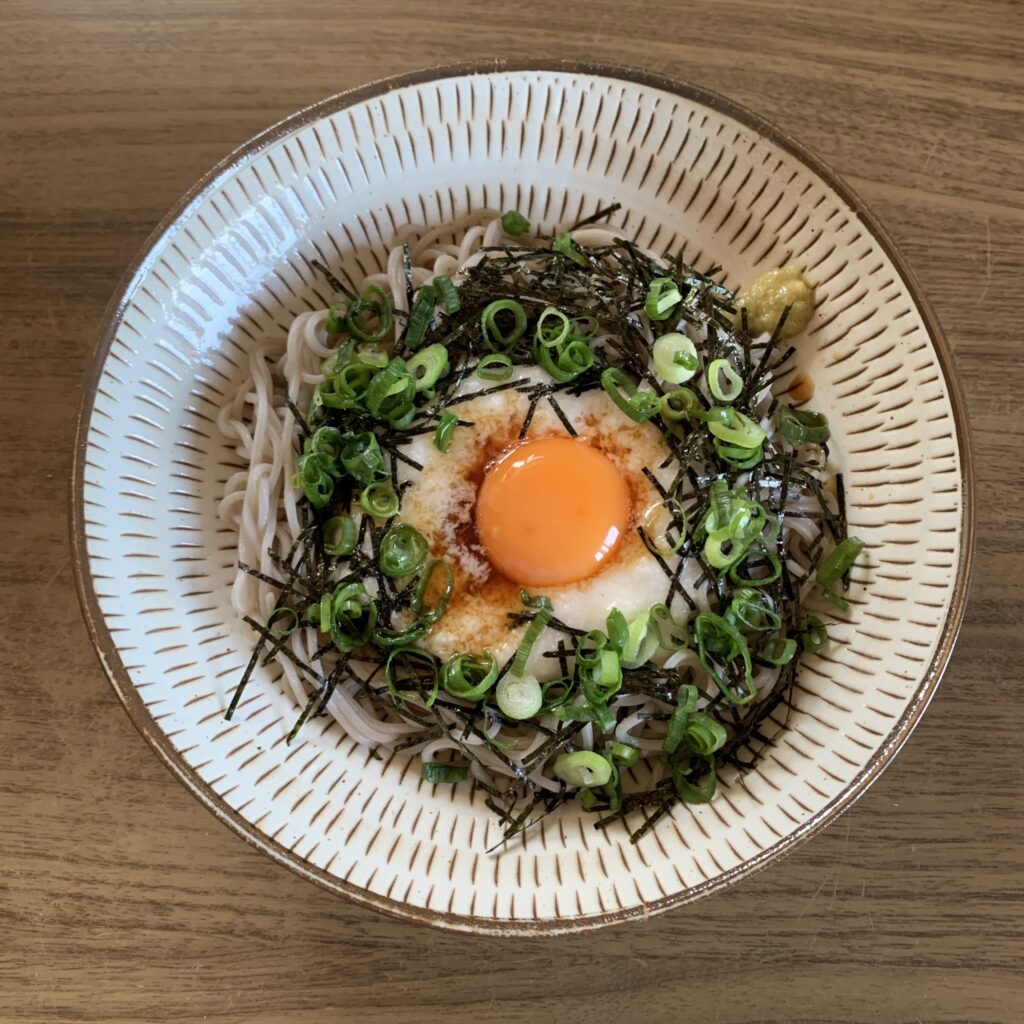
🍳INGREDIENTS : Yamakake soba (Tororo soba) (6SERVINGS)
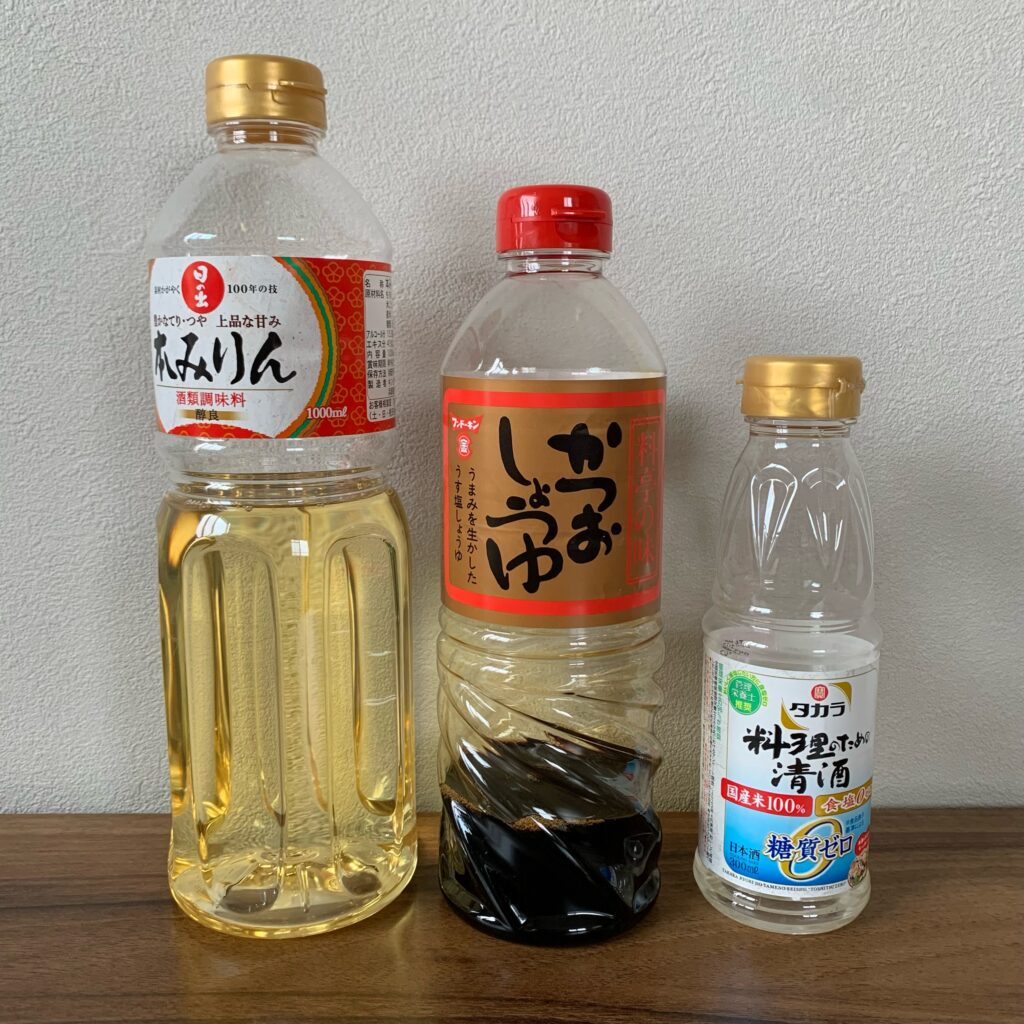
- Soba tsuyu
- ☆Sugar 25g
- ☆Mirin 40g
- ☆Sake 40g
- ☆Soy sauce 85g
- ☆Dashi stock granules 5g
- Ice or cold water 80~100g
- Tororo soba
- Yamaimo (mountain yam) 480g
- Green onion 60g
- Nama soba noodles 600g
- Egg yolk 6 pieces
- Chopped seaweed 10g
One serving is 100g of dried soba noodles, 140g of nama soba noodles, and 170g of boiled soba noodles.
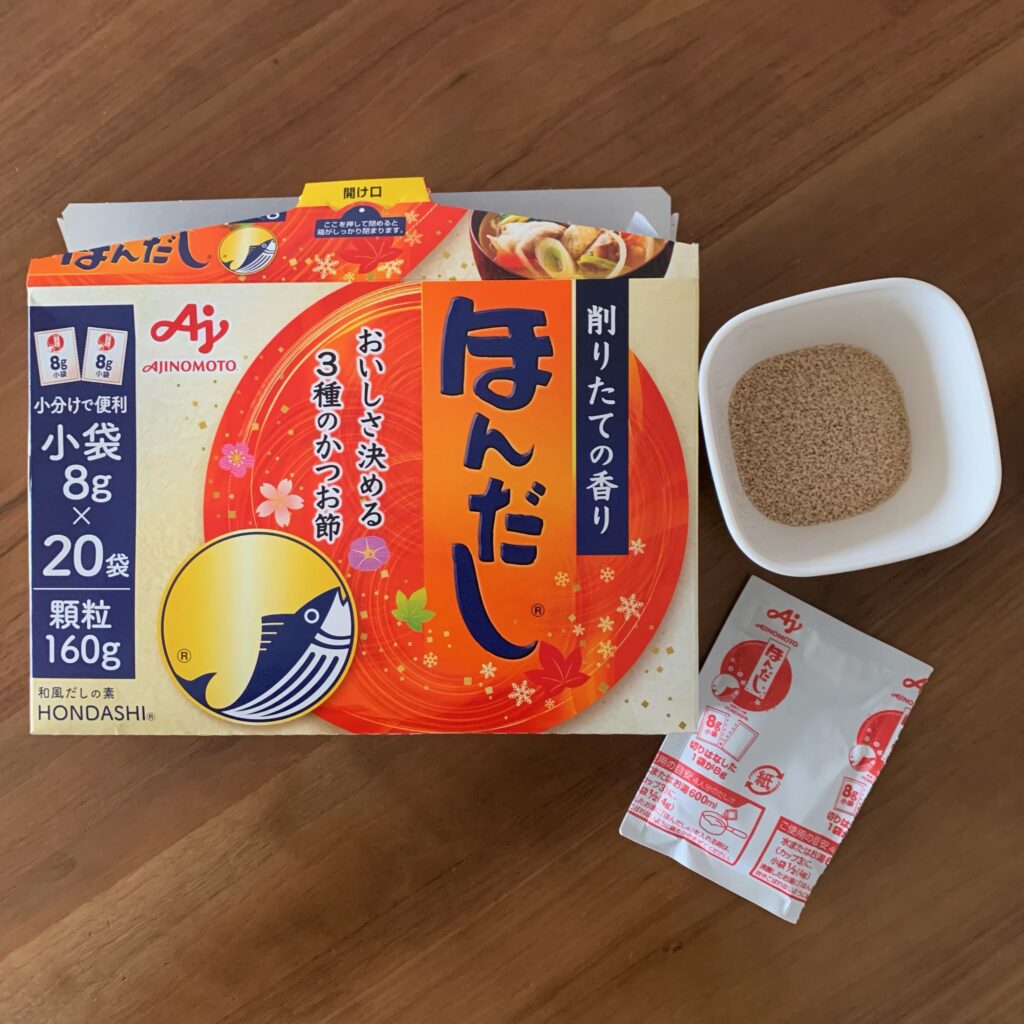
🔪How to make Yamakake soba (Tororo soba)
🍜 Preparing the Concentrated Soba Tsuyu
- Put the measured amounts of sugar, mirin, sake, soy sauce, and dashi stock granules into a saucepan.
- Bring the mixture to a boil over medium heat.
- As soon as it comes to a boil, immediately turn off the heat. (This prevents the soy sauce flavor from becoming too cooked down or bitter and preserves the rich aroma).
- Let the mentsuyu cool down, and then chill it completely in the refrigerator.
Note📒: As you mentioned, this is a strong flavor because it will be diluted with water or dashi when preparing the final soba soup for the dish.
🥣 Completing the Yamakake Soba

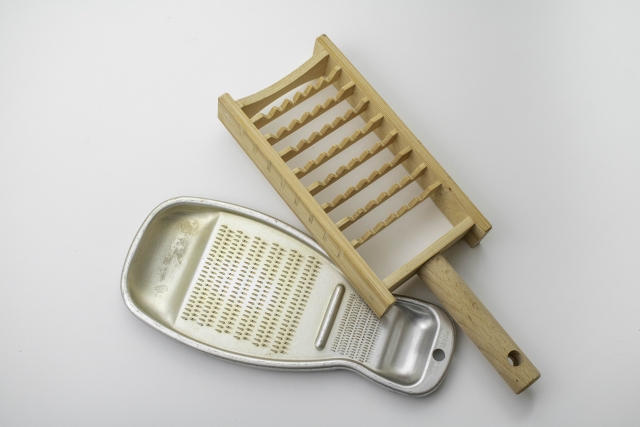
- Peel the Yam.
- Use a peeler to remove the skin while the yam is dry to prevent slipperiness and injury.
Wear vinyl or rubber gloves to avoid irritation, as the sticky components can make your hands very itchy.
Rinse the yam with water after it has been peeled.
- Use a peeler to remove the skin while the yam is dry to prevent slipperiness and injury.
- Grate the mountain yam using a grater or a suribachi (Japanese grinding bowl).
- A food processor can be used, but may leave small lumps.
- Finely chop the green onion.
- Bring plenty of water to a boil in a deep pot and cook the soba noodles.
- Please refer to the product instructions for cooking times: Approximate cooking times are 5 minutes for dry soba noodles, 2 minutes for fresh soba noodles, and 1 minute for boiled soba noodles.Keep the water boiling steadily throughout the entire time you are cooking the soba noodles.
- Rinse the boiled soba noodles under running water. Washing them once in cold water will give the noodles a firmer texture.Soba noodles tend to break easily, so handle them gently.
- Add ice or cold water to the mentsuyu and adjust to your desired taste.
- Adding ingredients will dilute the flavor of the soup. The taste of tsyuyu is just right, as when you taste it, you feel it’s strong.
- Place the soba noodles on a plate and garnish with grated yam, egg yolk, green onion, and chopped seaweed.
- Finally, pour the mentsuyu over them.
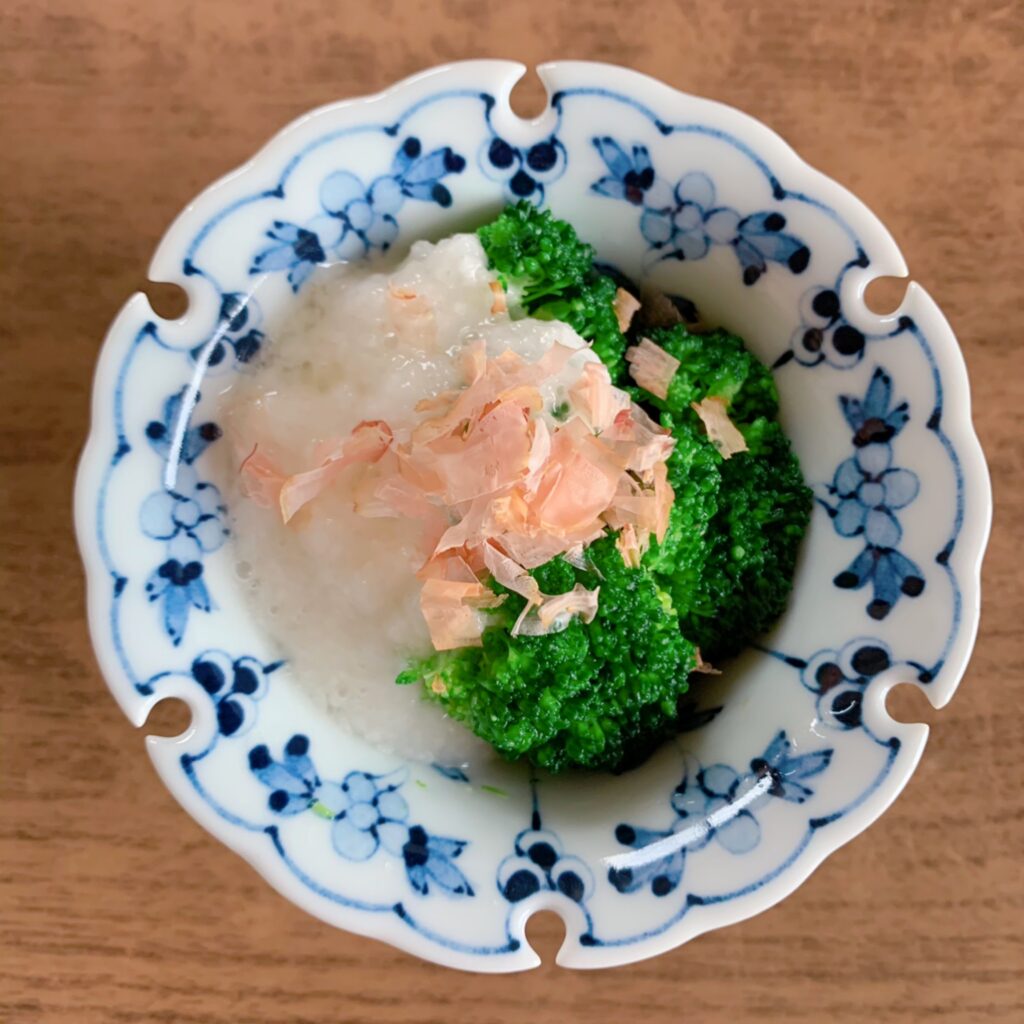
If you have any leftover grated yam, we recommend topping it on broccoli or spinach. For seasoning, please use salt koji, soy sauce, or mentsuyu.
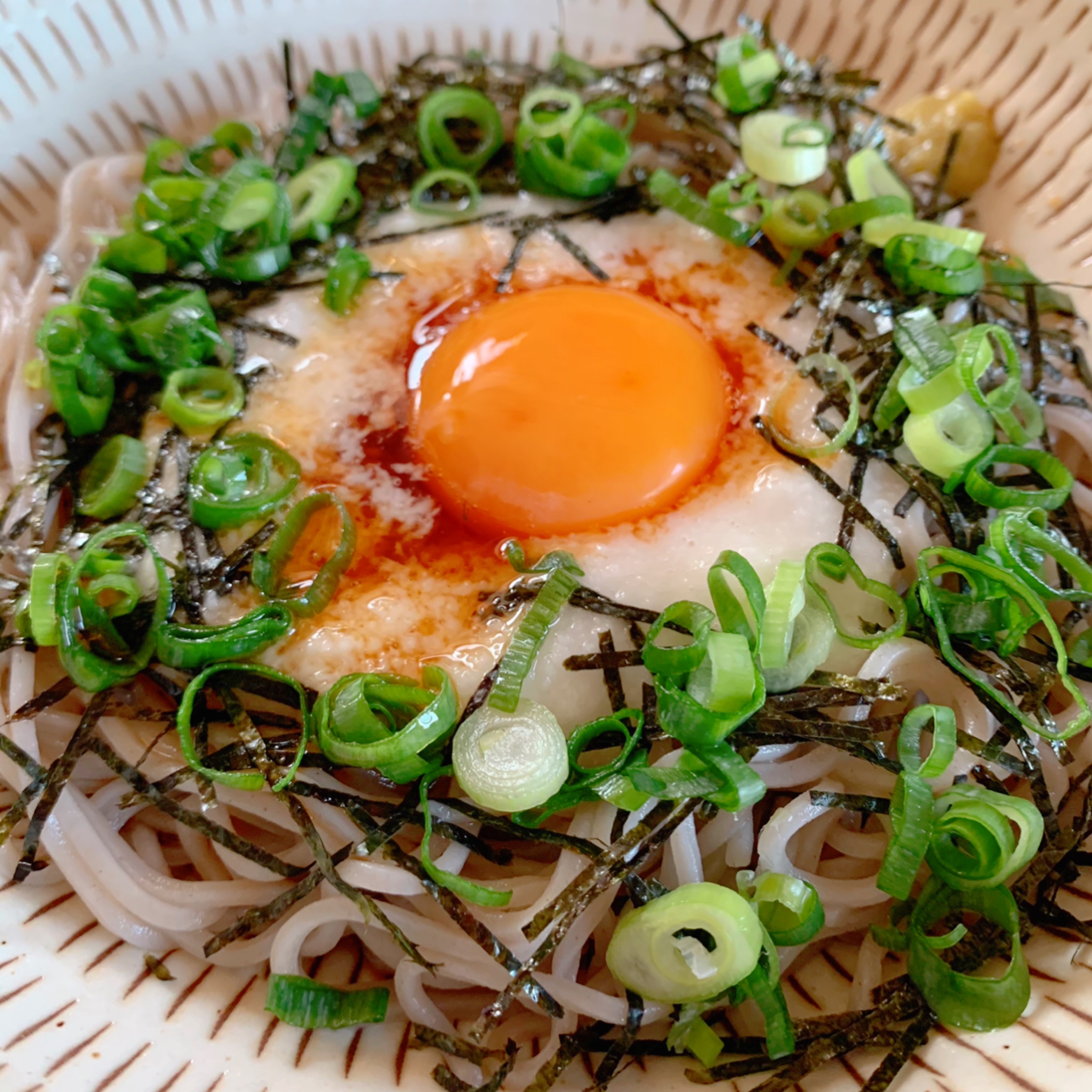
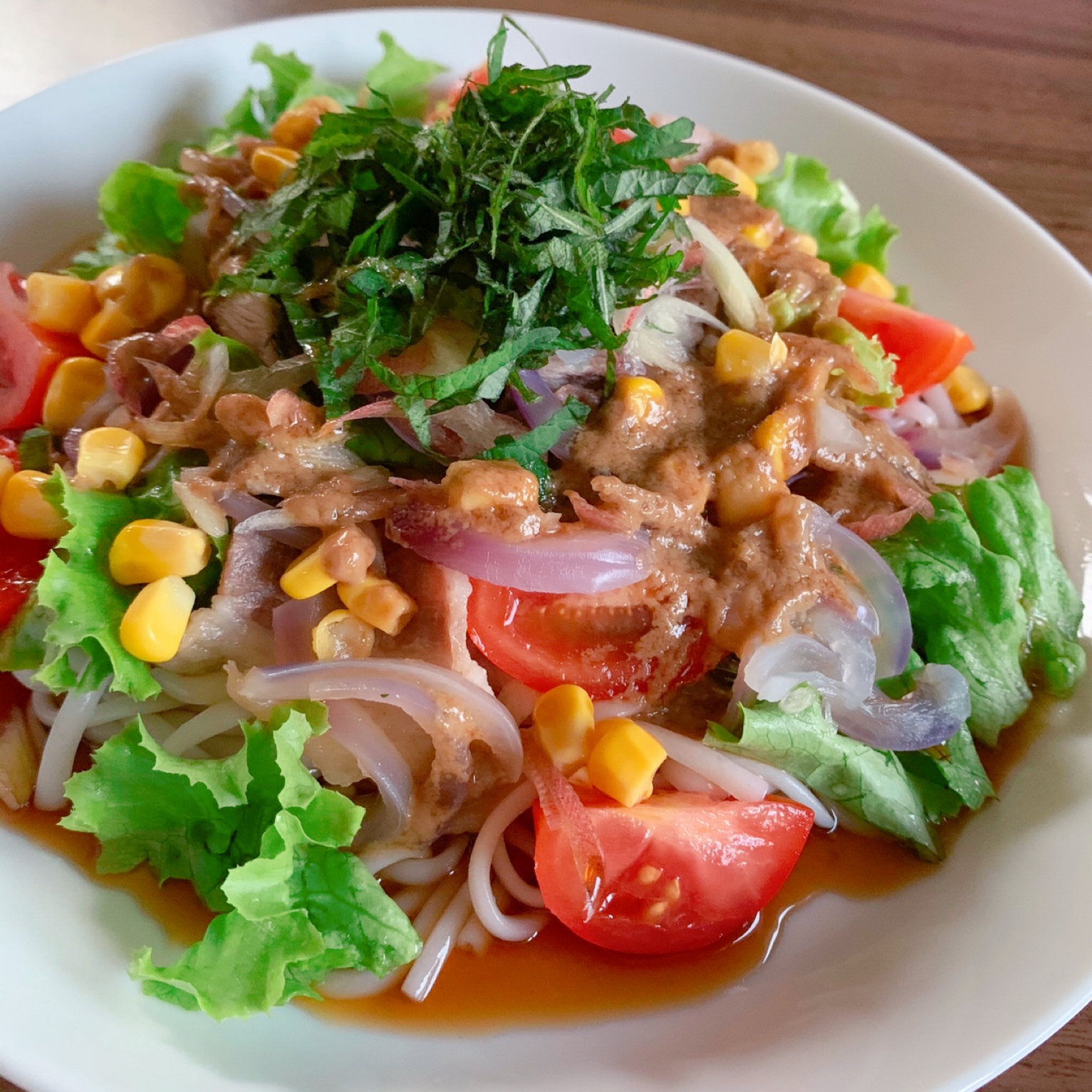
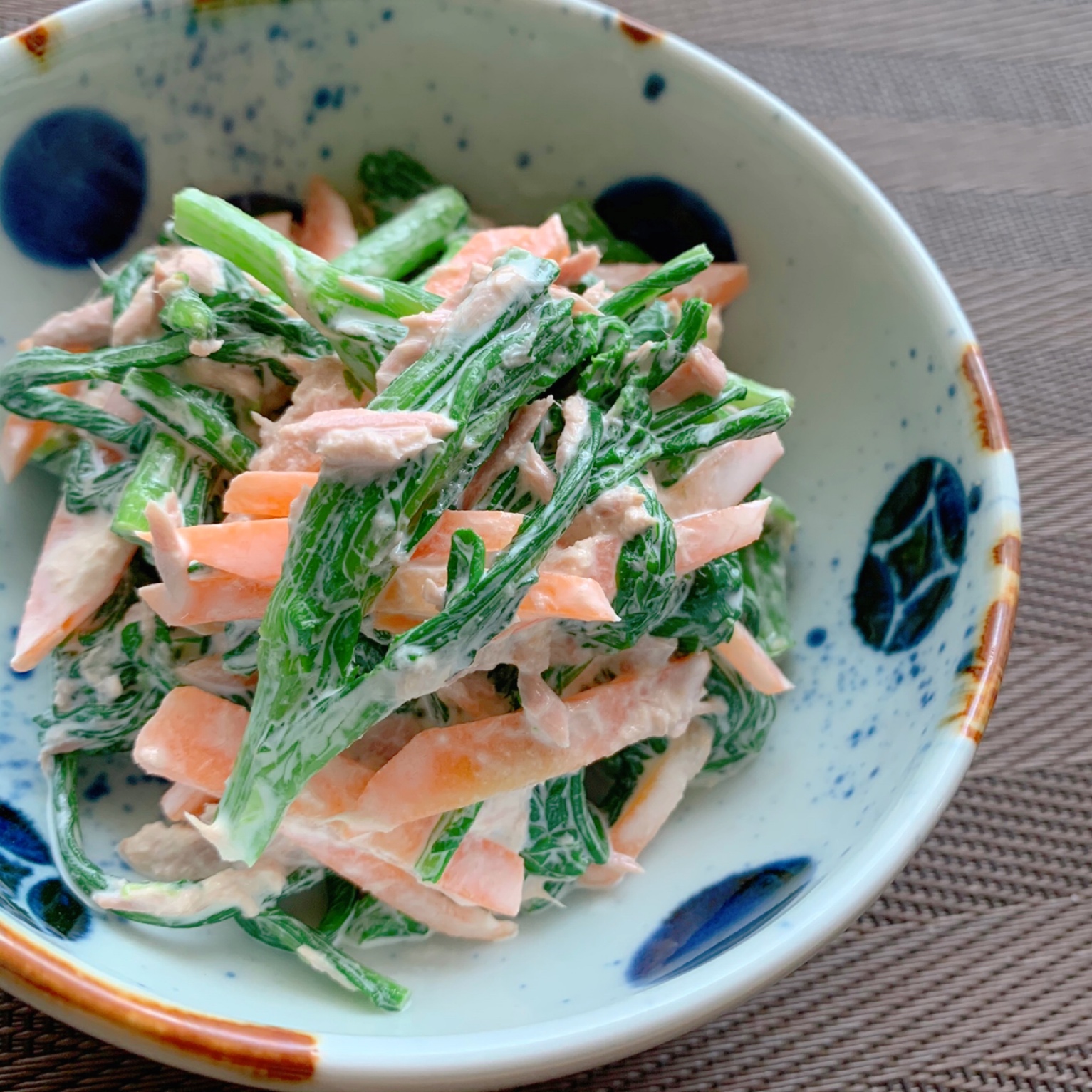
コメント